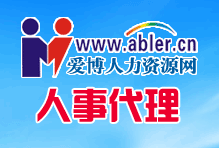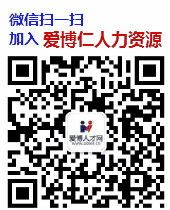简历指导:英文简历所向披靡
2008-10-18 14:35:00 来源:爱博仁人力资源网信息中心 作者:小杰采编 浏览46次
1. What IS a resume anyway?
Remember: a Resume is a self-promotional document that presents you in the best possible light, for the purpose of getting invited to a job interview. It’s not an official personnel document. It’s not a job application. It’s not a "career obituary"! And it’s not a confessional.
2. What should the resume content be about?
It’s not just about past jobs! It’s about YOU, and how you performed and what you accomplished in those past jobs--especially those accomplishments that are most relevant to the work you want to do next. A good resume predicts how you might perform in that desired future job.
3. What’s the fastest way to improve a resume?
Remove everything that starts with "responsibilities included" and replace it with on-the-job accomplishments. (See Tip 11 for one way to write them.)
4. What is the most common resume mistake made by job hunters?
Leaving out their Job Objective! If you don’t show a sense of direction, employers won’t be interested. Having a clearly stated goal doesn’t have to confine you if it’s stated well.
5. What’s the first step in writing a resume?
Decide on a job target (or "job objective") that can be stated in about 5 or 6 words. Anything beyond that is probably "fluff" and indicates a lack of clarity and direction.
6. How do you decide whether to use a Chronological resume or a Functional one?
The Chronological format is widely preferred by employers, and works well if you’re staying in the same field (especially if you’ve been upwardly-mobile). Only use a Functional format if you’re changing fields, and you’re sure a skills-oriented format would show off your transferable skills to better advantage; and be sure to include a clear chronological work history!
7. What if you don’t have any experience in the kind of work you want to do?
Get some! Find a place that will let you do some volunteer work right away. You only need a brief, concentrated period of volunteer training (for example, 1 day a week for a month) to have at least SOME experience to put on your resume. Also, look at some of the volunteer work you’ve done in the past and see if any of THAT helps document some skills you’ll need for your new job.
8. What do you do if you have gaps in your work experience?
You could start by looking at it differently. General Rule: Tell what you WERE doing, as gracefully as possible--rather than leave a gap. If you were doing anything valuable (even if unpaid) during those so-called "gaps" you could just insert THAT into the work-history section of your resume to fill the hole. Here are some examples:
1993-95 Full-time parent -- or
1992-94 Maternity leave and family management -- or
Travel and study -- or Full-time student -- or
Parenting plus community service
9. What if you have several different job objectives you’re working on at the same time? Or you haven’t narrowed it down yet to just one job target?
Then write a different resume for each different job target. A targeted resume is MUCH, much stronger than a generic resume.
10. What if you have a fragmented, scrambled-up work history, with lots of short-term jobs?
To minimize the job-hopper image, combine several similar jobs into one "chunk," for example:
1993-1995 Secretary/Receptionist; Jones Bakery, Micro Corp., Carter Jewelers -- or
1993-95 Waiter/Busboy; McDougal’s Restaurant, Burger King, Traders Coffee Shop.
Also you can just drop some of the less important, briefest jobs. But don’t drop a job, even when it lasted a short time, if that was where you acquired important skills or experience.
11. What’s the best way to impress an employer?
Fill your resume with "PAR" statements. PAR stands for Problem-Action-Results; in other words, first you state the problem that existed in your workplace, then you describe what you did about it, and finally you point out the beneficial results.
Here’s an example: "Transformed a disorganized, inefficient warehouse into a smooth-running operation by totally redesigning the layout; this saved the company thousands of dollars in recovered stock."
Another example: "Improved an engineering company’s obsolete filing system by developing a simple but sophisticated functional-coding system. This saved time and money by recovering valuable, previously lost, project records."
12. What if your job title doesn’t reflect your actual level of responsibility?
When you list it on the resume, either replace it with a more appropriate job title (say "Office Manager" instead of "Administrative Assistant" if that’s more realistic) OR use their job title AND your fairer one together, i.e. "Administrative Assistant (Office Manager)"
13. How can you avoid age discrimination?
If you’re over 40 or 50 or 60, remember that you don’t have to present your entire work history! You can simply label THAT part of your resume "Recent Work History" or "Relevant Work History" and then describe only the last 10 or 15 years of your experience. Below your 10-15 year work history, you could add a paragraph headed "Prior relevant experience" and simply refer to any additional important (but ancient) jobs without mentioning dates.
14. What if you never had any "real" paid jobs -- just self-employment or odd jobs?
Give yourself credit, and create an accurate, fair job-title for yourself.
For example:
A&S Hauling & Cleaning (Self-employed) -- or
Household Repairman, Self-employed -- or
Child-Care, Self-employed
Be sure to add "Customer references available on request" and then be prepared to provide some very good references of people you worked for.
15. How far back should you go in your Work History?
Far enough; and not too far! About 10 or 15 years is usually enough - unless your "juiciest" work experience is from farther back.
16. How can a student list summer jobs?
Students can make their resume look neater by listing seasonal jobs very simply, such as "Spring 1996" or "Summer 1996" rather than 6/96 to 9/96. (The word "Spring" can be in very tiny letters, say 8-point in size.)
17. What if you don’t quite have your degree or credentials yet?
You can say something like:
Eligible for U.S. credentials -- or
Graduate studies in Instructional Design, in progress -- or
Master’s Degree anticipated December 1997
18. What if you worked for only one employer for 20 or 30 years?
Then list separately each different position you held there, so your job progression within the company is more obvious.
19. What about listing hobbies and interests?
Don’t include hobbies on a resume unless the activity is somehow relevant to your job objective, or clearly reveals a characteristic that supports your job objective. For example, a hobby of Sky Diving (adventure, courage) might seem relevant to some job objectives (Security Guard?) but not to others.
20. What about revealing race or religion?
Don’t include ethnic or religious affiliations (inviting pre-interview discrimination) UNLESS you can see that including them will support your job objective. Get an opinion from a respected friend or colleague about when to reveal, and when to conceal, your affiliations.
21. What if your name is Robin Williams?
Don’t mystify the reader about your gender; they’ll go nuts until they know whether you’re male or female. So if your name is Lee or Robin or Pat or anything else not clearly male or female, use a Mr. or Ms. prefix.
22. What if you got your degree from a different country?
You can say "Degree equivalent to U.S. Bachelor’s Degree in Economics-Teheran, Iran."
23. What about fancy-schmancy paper?
Employers tell me they HATE parchment paper and pretentious brochure-folded resume "presentations." They think they’re phony, and toss them right out. Use plain white or ivory, in a quality appropriate for your job objective. Never use colored paper unless there’s a very good reason for it (like, you’re an artist) because if it gets photo-copied the results will be murky.
24. Should you fold your resume?
Don’t fold a laser-printed resume right along a line of text. The "ink" could flake off along the fold.
Remember: a Resume is a self-promotional document that presents you in the best possible light, for the purpose of getting invited to a job interview. It’s not an official personnel document. It’s not a job application. It’s not a "career obituary"! And it’s not a confessional.
2. What should the resume content be about?
It’s not just about past jobs! It’s about YOU, and how you performed and what you accomplished in those past jobs--especially those accomplishments that are most relevant to the work you want to do next. A good resume predicts how you might perform in that desired future job.
3. What’s the fastest way to improve a resume?
Remove everything that starts with "responsibilities included" and replace it with on-the-job accomplishments. (See Tip 11 for one way to write them.)
4. What is the most common resume mistake made by job hunters?
Leaving out their Job Objective! If you don’t show a sense of direction, employers won’t be interested. Having a clearly stated goal doesn’t have to confine you if it’s stated well.
5. What’s the first step in writing a resume?
Decide on a job target (or "job objective") that can be stated in about 5 or 6 words. Anything beyond that is probably "fluff" and indicates a lack of clarity and direction.
6. How do you decide whether to use a Chronological resume or a Functional one?
The Chronological format is widely preferred by employers, and works well if you’re staying in the same field (especially if you’ve been upwardly-mobile). Only use a Functional format if you’re changing fields, and you’re sure a skills-oriented format would show off your transferable skills to better advantage; and be sure to include a clear chronological work history!
7. What if you don’t have any experience in the kind of work you want to do?
Get some! Find a place that will let you do some volunteer work right away. You only need a brief, concentrated period of volunteer training (for example, 1 day a week for a month) to have at least SOME experience to put on your resume. Also, look at some of the volunteer work you’ve done in the past and see if any of THAT helps document some skills you’ll need for your new job.
8. What do you do if you have gaps in your work experience?
You could start by looking at it differently. General Rule: Tell what you WERE doing, as gracefully as possible--rather than leave a gap. If you were doing anything valuable (even if unpaid) during those so-called "gaps" you could just insert THAT into the work-history section of your resume to fill the hole. Here are some examples:
1993-95 Full-time parent -- or
1992-94 Maternity leave and family management -- or
Travel and study -- or Full-time student -- or
Parenting plus community service
9. What if you have several different job objectives you’re working on at the same time? Or you haven’t narrowed it down yet to just one job target?
Then write a different resume for each different job target. A targeted resume is MUCH, much stronger than a generic resume.
10. What if you have a fragmented, scrambled-up work history, with lots of short-term jobs?
To minimize the job-hopper image, combine several similar jobs into one "chunk," for example:
1993-1995 Secretary/Receptionist; Jones Bakery, Micro Corp., Carter Jewelers -- or
1993-95 Waiter/Busboy; McDougal’s Restaurant, Burger King, Traders Coffee Shop.
Also you can just drop some of the less important, briefest jobs. But don’t drop a job, even when it lasted a short time, if that was where you acquired important skills or experience.
11. What’s the best way to impress an employer?
Fill your resume with "PAR" statements. PAR stands for Problem-Action-Results; in other words, first you state the problem that existed in your workplace, then you describe what you did about it, and finally you point out the beneficial results.
Here’s an example: "Transformed a disorganized, inefficient warehouse into a smooth-running operation by totally redesigning the layout; this saved the company thousands of dollars in recovered stock."
Another example: "Improved an engineering company’s obsolete filing system by developing a simple but sophisticated functional-coding system. This saved time and money by recovering valuable, previously lost, project records."
12. What if your job title doesn’t reflect your actual level of responsibility?
When you list it on the resume, either replace it with a more appropriate job title (say "Office Manager" instead of "Administrative Assistant" if that’s more realistic) OR use their job title AND your fairer one together, i.e. "Administrative Assistant (Office Manager)"
13. How can you avoid age discrimination?
If you’re over 40 or 50 or 60, remember that you don’t have to present your entire work history! You can simply label THAT part of your resume "Recent Work History" or "Relevant Work History" and then describe only the last 10 or 15 years of your experience. Below your 10-15 year work history, you could add a paragraph headed "Prior relevant experience" and simply refer to any additional important (but ancient) jobs without mentioning dates.
14. What if you never had any "real" paid jobs -- just self-employment or odd jobs?
Give yourself credit, and create an accurate, fair job-title for yourself.
For example:
A&S Hauling & Cleaning (Self-employed) -- or
Household Repairman, Self-employed -- or
Child-Care, Self-employed
Be sure to add "Customer references available on request" and then be prepared to provide some very good references of people you worked for.
15. How far back should you go in your Work History?
Far enough; and not too far! About 10 or 15 years is usually enough - unless your "juiciest" work experience is from farther back.
16. How can a student list summer jobs?
Students can make their resume look neater by listing seasonal jobs very simply, such as "Spring 1996" or "Summer 1996" rather than 6/96 to 9/96. (The word "Spring" can be in very tiny letters, say 8-point in size.)
17. What if you don’t quite have your degree or credentials yet?
You can say something like:
Eligible for U.S. credentials -- or
Graduate studies in Instructional Design, in progress -- or
Master’s Degree anticipated December 1997
18. What if you worked for only one employer for 20 or 30 years?
Then list separately each different position you held there, so your job progression within the company is more obvious.
19. What about listing hobbies and interests?
Don’t include hobbies on a resume unless the activity is somehow relevant to your job objective, or clearly reveals a characteristic that supports your job objective. For example, a hobby of Sky Diving (adventure, courage) might seem relevant to some job objectives (Security Guard?) but not to others.
20. What about revealing race or religion?
Don’t include ethnic or religious affiliations (inviting pre-interview discrimination) UNLESS you can see that including them will support your job objective. Get an opinion from a respected friend or colleague about when to reveal, and when to conceal, your affiliations.
21. What if your name is Robin Williams?
Don’t mystify the reader about your gender; they’ll go nuts until they know whether you’re male or female. So if your name is Lee or Robin or Pat or anything else not clearly male or female, use a Mr. or Ms. prefix.
22. What if you got your degree from a different country?
You can say "Degree equivalent to U.S. Bachelor’s Degree in Economics-Teheran, Iran."
23. What about fancy-schmancy paper?
Employers tell me they HATE parchment paper and pretentious brochure-folded resume "presentations." They think they’re phony, and toss them right out. Use plain white or ivory, in a quality appropriate for your job objective. Never use colored paper unless there’s a very good reason for it (like, you’re an artist) because if it gets photo-copied the results will be murky.
24. Should you fold your resume?
Don’t fold a laser-printed resume right along a line of text. The "ink" could flake off along the fold.
责任编辑:xiejie
标签:
爱博仁人力资源官网版权与免责声明:
1、本网转载其他媒体,目的在于传递信息,并不代表赞同其观点和对其真实性负责,本网不承担此类稿件侵权行为的连带责任。
2、如本网所转载稿件涉及版权等问题,请著作权或版权拥有机构致电或来函与本网联系,本网将在第一时间处理妥当。如有侵犯您的名誉权或其他权利,亦请及时通知本网。本网在审慎确认后,将即刻予以删除。
3、本网原创文章未经本网允许,私自转载者本网保留追究其版权责任的权利,转载请注明来源:爱博仁人力资源官网:http://www.abler.cn。
1、本网转载其他媒体,目的在于传递信息,并不代表赞同其观点和对其真实性负责,本网不承担此类稿件侵权行为的连带责任。
2、如本网所转载稿件涉及版权等问题,请著作权或版权拥有机构致电或来函与本网联系,本网将在第一时间处理妥当。如有侵犯您的名誉权或其他权利,亦请及时通知本网。本网在审慎确认后,将即刻予以删除。
3、本网原创文章未经本网允许,私自转载者本网保留追究其版权责任的权利,转载请注明来源:爱博仁人力资源官网:http://www.abler.cn。
发表评论
发表评论须知:
一、所发文章必须遵守《互联网电子公告服务管理规定》;
二、严禁发布供求代理信息、公司介绍、产品信息等广告宣传信息;
三、严禁恶意重复发帖;
四、严禁对个人、实体、民族、国家等进行漫骂、污蔑、诽谤。
频道推荐
精彩推荐

如何应对面试官3秒或者30秒浏览简历的原则 “我一看你的简历,就觉得你输了!”前阵子,朋友欧阳成功转正了一家上市公司,按照惯例请了一伙人吃饭庆祝,大家都夸她说:真给…[详细]

乞丐的觉醒:当改变自己时 一切都在改变 当你改变自己时,你会发现一切都改变了。 曾经有一个卖花的小姑娘在卖完大部分的花之后,发现天色己晚,所以决定早点回家。…[详细]

房地产业新职业:验房师 10月27日,据中国房地产业协会消息,中国就业培训技术指导中心、中国房地产业协会正式启动《验房师国家职业标准》编制。 “…[详细]

一位职场老前辈厉害总结的心得 如果这篇文章没有分享给你,那是我的错。 如果这篇文章分享给你了,你却没有读,继续走弯路的你不要怪我。 如果你看了这篇文章…[详细]

在不冒犯对方的情况下 优雅地结束对话 您一定有过这样的经验,正当您在会议上与某人交谈,却从中意识到对话结束了!虽然你们都还在为延续对话而做出贡献,但却只是在运…[详细]

如何应对面试官3秒或者30秒浏览简历的原则“我一看你的简历,就觉得你输了!”前阵子,朋友欧阳成功转正了一家上市公司,按照惯例请了一伙人吃饭庆祝,大家都夸她说:真给…[详细]
- ·职业百科:系统交付工程师
- ·职业百科:仪器仪表工程师
- ·做人做事,顺序很重要
- ·凡事提前五分钟
- ·和领导出差,该聊点啥?
- ·闹离职的员工没走,不吭声的员工突然离职
- ·李佳琦一夜赚6亿,背后的高学历团队扎心……
- ·提升自己职业技能的方式,增加工作机会,提高成功的概率
- ·职场“名媛”

















